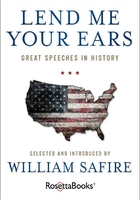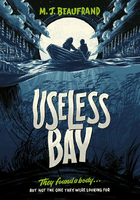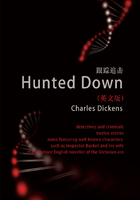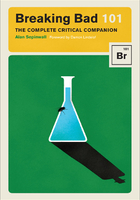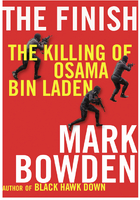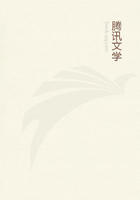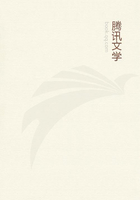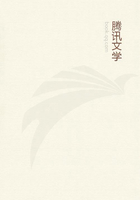After the twin towers fell on 9/11, Todd Purdum, then one of the senior political reporters in the Washington bureau of the Times, began reciting, "America wept tonight, not alone for its dead young president, but for itself." The words belonged not to him but to James Reston, who wrote them on deadline late in the day on November 22, 1963. Reston, known as Scotty, had assembled some of the best talent ever known to journalism in the Times' Washington bureau: Tom Wicker, Anthony Lewis, Max Frankel, Russell Baker and others, all of whom had covered the presidency of John F. Kennedy, when Washington was the epicenter of everything.
All of them also covered his sudden death. That first day's paper included 250 columns of news, about 200,000 words, about the assassination. The Times team was writing at the exact moment when television came into its own as the primary way the nation got its news. Beginning at around 1 p.m. on November 22, the networks broadcast 72 straight hours of news about the assassination. While television became the vehicle for national mourning, Times correspondents were covering events with a kind of emotional vividness and detailed descriptiveness that would soon begin to fade, as everyone began seeing the news for themselves on the television screen.
The Kennedy presidency saw the Times at its zenith of influence. Arthur Krock, a former Washington bureau chief, had been unusually (perhaps uncomfortably) close to the Kennedy family, especially Joe Kennedy, the president's father. Punch Sulzberger, the publisher, lunched with Kennedy. Reston talked to him regularly. "No president paid more attention not only to the press but also reporters," Wicker wrote. "They became, however tenuously, part of his entourage."
Like most of the press, the Times did not investigate JFK's personal life, including his affairs and health problems. At the time there were rampant rumors about his Addison's disease, but the Times pronounced him to be in "superb physical condition." Later in life, Wicker recognized the down side to this coziness. "White House reporters, including me, were not skeptical enough, challenging enough, diligent enough, dedicated enough to the watchdog function of the press," he wrote much later.
During his prep school years at Choate, JFK became a subscriber to The New York Times and a lifelong reader. The Times helped fuel his political ascent, beginning with his career as a Navy lieutenant. KENNEDY'S SON IS HERO IN PACIFIC AS DESTROYER SPLITS HIS PT BOAT, was the Times' headline.
When JFK was first elected to Congress, the Times was among the East Coast papers that celebrated him as a young Galahad. But the relationship could sometimes be tempestuous. In the debate over whether Kennedy had authored his Pulitzer Prize–winning book, Profiles in Courage, he was annoyed that Times editor John Oakes was spreading gossip that he had a ghostwriter. But when Kennedy was angling to become Adlai Stevenson's running mate in 1956, the Times compared his appearance to that of a movie star "whose personality and good looks made him an instant celebrity."
Once he got to the White House the Times was both his tool and his conscience. He said the photos in the Times of Bull Connor's attack dogs biting students in Birmingham had made him sick to his stomach and strengthened his resolve to push for the civil rights bill in 1963.
In 1961, after the Times downplayed a news story on the impending Bay of Pigs invasion, a fiasco that badly bruised his young presidency, Kennedy told Times editor Turner Catledge, "Maybe if you had printed more about the operation you would have saved us from a colossal mistake." Still, he later asked the Times to hold off publishing emerging details about the danger of Soviet missiles in Cuba, some of his finest hours as president.
There was tension between the Kennedy White House and the Times over coverage of the American military presence in Vietnam. Kennedy felt pressured by David Halberstam's unrelenting coverage and he tried, unsuccessfully, to have Halberstam removed from Vietnam.
But the four days in November 1963 were the pinnacle, and the power of the words from those days is still haunting. It is hard for me to believe they were all written on incredible deadline pressure. Anthony Lewis began his story on Lyndon Johnson on November 22 this way, "Detachment, understatement, irony, sophistication, coolness—those were the qualities that were seen in the manner of John F. Kennedy. The trademarks of Lyndon Johnson are emotion, flamboyance, folksiness."
Wicker, who filed the main news story in Dallas, added his own emotion to the story he wrote the next day: "History, no doubt, will measure him unemotionally and impartially. But those who went with him almost all the way cannot."
Marjorie Hunter soulfully described every step as Jacqueline Kennedy, holding her children's hands, followed her husband's flag-draped coffin into the Capitol Rotunda. On the day of the funeral, Anthony Lewis described her face as looking "like that of a 34-year-old girl burdened with sorrow, instead of the president's wife."
On that sad day of history, Russell Baker wrote "It dawned cold, clear and quiet, this day when they buried the president. There was movement in the city, as there had been throughout the night, but it was crowd movement without the noise of crowds, and the silence was pervasive."
The golden era, when the press and the country had a leader who inspired them, was over.
—Jill Abramson
Executive editor of The New York Times

